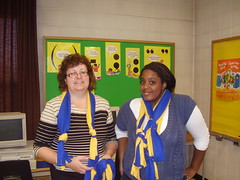As we move on from the industrial age we are also moving to be collaborators and producers more than just critical consumers. this means a new mindset for educators and skill set for students.
Find out more:
http://newmedialiteracies.org/
This video is from:
http://projectnml.ning.com/page/what-are-the-new-media
Tuesday, March 31, 2009
Sunday, March 15, 2009
sixth sence
Watch this Ted talks - technology that is a work in process,
exctiting frontiers
exctiting frontiers
[ www.mobileUncle.com ] Basically, Sixth Sense is a mini-projector coupled with a camera and a cellphone—which acts as the computer and your connection to the Cloud, all the information stored on the web. Sixth Sense can also obey hand gestures, like in the movie Report.
NO internet = No problem
Google Geers is and excellent tool that rally bridges the gap between online application and tools and off line uses.
So before you pay for anymore licence upgrades for "office" or "email" tools try our Google Applications including Google Geers- You may never look back.
See you at the cottage! I'll be "working" from up at the lake.
So before you pay for anymore licence upgrades for "office" or "email" tools try our Google Applications including Google Geers- You may never look back.
See you at the cottage! I'll be "working" from up at the lake.
Google Docs
from
http://www.vaopenclassroom.org/content/google-docs-vste-presentation
I've posted an have been using Google docs for a while.
I came accross this presentation by sbeck and it's excellent for demonstrating how to use Google doc.
Love the abiltiy to switch from a desktop to my netbook, to laptop and never having to upload, down load or carry files in sticks and discs etc. So many applications for education, and personal use.
Sunday, March 8, 2009
slide share -web 2.0
Slide share is great way tho publish presentations
Here is one about web 2.0
from Steve Hargadon
Here is one about web 2.0
from Steve Hargadon
Mixbook - make your own books- online
Her is a fun project that could work in the classroom. This type of activity would build teamwork, photo skills, literacy and more depending on the subject and topics.
Thanks to Martha Thornburgh- for blogging about this one!
http://digital-doors.blogspot.com/2009/02/week-23-web-20-wednesday-challenge.html
I searched Mixbook and found this sample too.
Thanks to Martha Thornburgh- for blogging about this one!
http://digital-doors.blogspot.com/2009/02/week-23-web-20-wednesday-challenge.html
I searched Mixbook and found this sample too.
Betty Blogger - winter school
Over the last few months I have been participating in:
http://bplsummerschool.blogspot.com/
What was the most important thing you learned in the Betty Blogger Winter School? Why?
The activities all emphasised new web 2.0 technology tools and how they can be used effectively in education. There are sooooo many new and great tools and the fact they are free ans easy to use is a real bonus. I realise that it is essential to be trying new methods and educational tools to keep students interested. i agree with many of the professionals in the technology area that as a teacher you have to be willing to try and test out items before you can expect the students to use them in the classroom. I believe in life long learning and the learning can never stop when you are talking technology and it's impact on every subject area.
What was most challenging? Why?
The biggest challenge is having to choose what tools you want to make a commitment to learning more about. Some tools I have just skimmed over and others I have used with my students this semester. There are lots that I want to go back and spend more time on. A second challenge is having access to technology in the classroom, and resistance from some traditional teachers.
What were some of the best ideas you had for ways web 2.0 applications could be used in schools?
The tools that I find most valuable are:
Wikis- easy to create web content for class projects, courses etc
Reader- having information come to you.
Google - docs and more. the more I use these programs the more I like the versatility and easy access to my work.
Are there any applications we didn’t cover that you think might be good to incorporate into school training? What were they and why?
There are new tools available every day, so I think the topic covered are a great starting point but the learning never stops. You can see more of my favourites here on this blog.
How successful was the “self-directed” learning model?
I think that self directed learning worked for me because I was already interested in the technology and subject areas. Just as we offer learning in a variety of formats and methods for students I think the same is true for adult learners- teachers.
Thanks Betty It's been fun!
http://bplsummerschool.blogspot.com/
What was the most important thing you learned in the Betty Blogger Winter School? Why?
The activities all emphasised new web 2.0 technology tools and how they can be used effectively in education. There are sooooo many new and great tools and the fact they are free ans easy to use is a real bonus. I realise that it is essential to be trying new methods and educational tools to keep students interested. i agree with many of the professionals in the technology area that as a teacher you have to be willing to try and test out items before you can expect the students to use them in the classroom. I believe in life long learning and the learning can never stop when you are talking technology and it's impact on every subject area.
What was most challenging? Why?
The biggest challenge is having to choose what tools you want to make a commitment to learning more about. Some tools I have just skimmed over and others I have used with my students this semester. There are lots that I want to go back and spend more time on. A second challenge is having access to technology in the classroom, and resistance from some traditional teachers.
What were some of the best ideas you had for ways web 2.0 applications could be used in schools?
The tools that I find most valuable are:
Wikis- easy to create web content for class projects, courses etc
Reader- having information come to you.
Google - docs and more. the more I use these programs the more I like the versatility and easy access to my work.
Are there any applications we didn’t cover that you think might be good to incorporate into school training? What were they and why?
There are new tools available every day, so I think the topic covered are a great starting point but the learning never stops. You can see more of my favourites here on this blog.
How successful was the “self-directed” learning model?
I think that self directed learning worked for me because I was already interested in the technology and subject areas. Just as we offer learning in a variety of formats and methods for students I think the same is true for adult learners- teachers.
Thanks Betty It's been fun!
Labels:
betty blogger,
learning reflections,
self directed,
web 2.0
Library Thing

There is a new site called "Library Thing" that allows you to creat an account. Email not required for once. On this account you can post books that you read or that relate to a topic you are interested in. He is my list. http://www.librarything.com/profile/MJPage
This site may have some possiblities for use in reading circles or the classroom to help engage student in reading and discussion about books. Some of the features include groups, talk, chat and local map and events.
check it out.
Sunday, March 1, 2009
No time to Read
With the constant increase in demands in our time, many find they can not find the time to try something new. But truth is many of the new web 2,0 tools help save time and, and using a Reader is just one of those useful tools. If you think about all the time we spend searching for information, compared to the short time to set up a reader that will bring information to you instead. I set up a Google Reader last October and admit there I times when I don't get to it, but when I look at it once a week or so there, I find lots of information about the topics that are important for me. The reader brings to your computer just the changes and updates made on any web page with RSS feed.
For educators the rss can be used to:
Research teaching topics, or students can set up reader for research, especially if they need to gather information throughout the semester on a topic.
Teachers that have students working on Blogs or wiki can know what they have published by subscribing to their works.
The Reader is also a good way to build your professional learning network. I have learned a lot about these technology tools by viewing the blogs and sites of other teachers interested and working with technology.
For more on Readers check out my previous entry
http://mjpageeducation.blogspot.com/2009/01/reading-literacy-without-barriers.html
For educators the rss can be used to:
Research teaching topics, or students can set up reader for research, especially if they need to gather information throughout the semester on a topic.
Teachers that have students working on Blogs or wiki can know what they have published by subscribing to their works.
The Reader is also a good way to build your professional learning network. I have learned a lot about these technology tools by viewing the blogs and sites of other teachers interested and working with technology.
For more on Readers check out my previous entry
http://mjpageeducation.blogspot.com/2009/01/reading-literacy-without-barriers.html
wiki in the classroom
Making and using a wiki is an easy way to publish web content in a collaboartive means. A wiki can be used to plan a speicific event like a thankgiving dinner.- I can bring a game like monopoly and leave the cooking to other guests.
here are some sample wiki's
http://smartbusinesseducation.wetpaint.com/page/Wikis+For+Business+Education
Wiki can be for online textbooks:
http://smartbusinesseducation.wetpaint.com/page/Wiki+Text+Books
Class & Group projects
Burlinton Central - Civics
http://civicstext.wetpaint.com/
Aldershot - Entrepreneurship
http://aldershot01.wetpaint.com/
Iroquois Ridge- World Issues
http://internationaldebtcrisis.wikispaces.com/
or Team/ club websites
Burlington Central -Robotics
http://bchrobotics.wetpaint.com/
As you can see from these examples it is easy to track who the contributors, are , what changes are made, all types of media can be included and the work will continue to avalable and built on over time.
See my previous entry on wikis in education:
http://mjpageeducation.blogspot.com/2009/01/wikis-in-education.html
here are some sample wiki's
http://smartbusinesseducation.wetpaint.com/page/Wikis+For+Business+Education
Wiki can be for online textbooks:
http://smartbusinesseducation.wetpaint.com/page/Wiki+Text+Books
Class & Group projects
Burlinton Central - Civics
http://civicstext.wetpaint.com/
Aldershot - Entrepreneurship
http://aldershot01.wetpaint.com/
Iroquois Ridge- World Issues
http://internationaldebtcrisis.wikispaces.com/
or Team/ club websites
Burlington Central -Robotics
http://bchrobotics.wetpaint.com/
As you can see from these examples it is easy to track who the contributors, are , what changes are made, all types of media can be included and the work will continue to avalable and built on over time.
See my previous entry on wikis in education:
http://mjpageeducation.blogspot.com/2009/01/wikis-in-education.html
Sunday, February 22, 2009
Google Doc's Rock
Over the last few months I have been using Google docs.
I love the Document, spreadsheet, forms and presentation features.
Here is a sample document where I talk about my favourite book and a teacher librarian that may a difference for me when I was a new teacher.
http://docs.google.com/Doc?id=dhfq3xfw_207fbgvz4qb&hl=en
What's so great about Google docs:
1. It free, unlike the majority of software out there, so move over Microsoft.
2. You never have to play "Where's Waldo" with your work. Saving information on the Internet means you don't need a memory stick, CD or email attachments to transfer your latest work from one station to another. You can view document history and revert back to any previous versions, imagine never loosing your work again.
3. Documents with choice. You can make private documents that are secure, or you can choose to have others help create it and you can publish work with ease. It's all synchronized and saved on the web. They can be collaborative, public or private as needed.
4. Easy to integrate, always improving. Google has a team of engineers coming up with new ways and tools, so it's fully integrated into other web programs and tools from your Google account, IE Reader, Blogger, video, google images etc.
5.Internet not working - no problem, just use Google offline with Google Gears
My previous entries about Google docs:
http://mjpageeducation.blogspot.com/2009/01/google-docs-teachers-in-digital-age.html
http://mjpageeducation.blogspot.com/2009/01/google-forms-for-surveys-quizes-and.html
I love the Document, spreadsheet, forms and presentation features.
Here is a sample document where I talk about my favourite book and a teacher librarian that may a difference for me when I was a new teacher.
http://docs.google.com/Doc?id=dhfq3xfw_207fbgvz4qb&hl=en
What's so great about Google docs:
1. It free, unlike the majority of software out there, so move over Microsoft.
2. You never have to play "Where's Waldo" with your work. Saving information on the Internet means you don't need a memory stick, CD or email attachments to transfer your latest work from one station to another. You can view document history and revert back to any previous versions, imagine never loosing your work again.
3. Documents with choice. You can make private documents that are secure, or you can choose to have others help create it and you can publish work with ease. It's all synchronized and saved on the web. They can be collaborative, public or private as needed.
4. Easy to integrate, always improving. Google has a team of engineers coming up with new ways and tools, so it's fully integrated into other web programs and tools from your Google account, IE Reader, Blogger, video, google images etc.
5.Internet not working - no problem, just use Google offline with Google Gears
My previous entries about Google docs:
http://mjpageeducation.blogspot.com/2009/01/google-docs-teachers-in-digital-age.html
http://mjpageeducation.blogspot.com/2009/01/google-forms-for-surveys-quizes-and.html
Friday, February 20, 2009
Monday, February 16, 2009
Visual learning for the classroom -working with photo's
Using visuals in the classroom always good.
Flickr and Picasa are just a few of the photo tools out there.
Use photos in the classroom to:
Inspire writing, reflections, raise questions etc.
Create a series of events - time capzles with Capzles
Intergrate into a presentation- with slide share
Make photo into a discussion with voice thread
Text to video with Xtranormal
more ideas and sources:
Tom Barrett -35 interesting ways to use your pocket video camera in the classroom
http://docs.google.com/Present?docid=dhn2vcv5_6tv55j7g9
http://matnonline.pbwiki.com/Photo%20Sharing%20to%20Support%20Student%20Achievement
Accessible Educational Technology: A Picture Can Create a Thousand Words
Flickr and Picasa are just a few of the photo tools out there.
Use photos in the classroom to:
Inspire writing, reflections, raise questions etc.
Create a series of events - time capzles with Capzles
Intergrate into a presentation- with slide share
Make photo into a discussion with voice thread
Text to video with Xtranormal
more ideas and sources:
Tom Barrett -35 interesting ways to use your pocket video camera in the classroom
http://docs.google.com/Present?docid=dhn2vcv5_6tv55j7g9
http://matnonline.pbwiki.com/Photo%20Sharing%20to%20Support%20Student%20Achievement
Accessible Educational Technology: A Picture Can Create a Thousand Words
BCHS DECA school spirit scarves for sale
Testing out Flickr. I uploade a photo I had on file. This is from the DECA fundraising event we had last year at our school.
Netbooks - wouldn't it be nice!
With all the online application, in cloud computing, we will no longer need to buy expensive software or expensive hardware. The economic barrier to access for teachers and students could be eliminated. Here's how it works.
According to Tony Vincent- Learning in Hand
http://www.isteconnects.org/2009/02/13/sub-100-netbooks-are-coming/
According to Tony Vincent- Learning in Hand

Two trends in the world of technology are making a big splash in education: web applications and netbooks. These trends excite me because I'm all about easy, free, and cheap. There are many tasks that used to require software that you can now do from inside of your Web browser.... Web apps are great for students and teachers because they are usually free and do not require software to be installed. Because they run in a web browser, web apps are cross-platform, so it doesn't matter if you are running Windows, Macintosh, or Linux operating systems. Because Web apps and their data are stored online, students and teachers can access the apps and data from anywhere (this is called cloud computing). Teachers and students can access web apps on any school computer and also their computers at home. Some web apps even give access on mobile devices. Another bonus: web apps tend to facilitate online sharing and collaboration.Wes Fryer is among others that predict that netbooks will cost < $100. soon.
http://www.isteconnects.org/2009/02/13/sub-100-netbooks-are-coming/
We need to embrace digital curriculum in our schools and colleges NOW, andI purchased a small netbook and can't wait see them as a viable learning tool in the classroom. Leaving the traditional classroom labs to computer programing and specialized classes.
digital curriculum mandates student access to digital devices. The 1:1 learning
revolution is drawing nearer, and announcements like this one about a $20 laptop
from India is a signal that day is even closer.
Add visuals to tags, bookmarks,
I was just reading Larry Ferlazzo blog and tried out the Favthumbs as a way to share those bookmarks and items tagged with Del.icio.us with students.
The Favethumbs looks like a neat tool. Here mine:
http://favthumbs.com/mjpage1234
Check out Larry's blog for more ideas.
http://larryferlazzo.edublogs.org/2009/02/15/the-best-sources-for-internet-scavenger-hunts-webquests/
The Favethumbs looks like a neat tool. Here mine:
http://favthumbs.com/mjpage1234
Check out Larry's blog for more ideas.
http://larryferlazzo.edublogs.org/2009/02/15/the-best-sources-for-internet-scavenger-hunts-webquests/
TOOLS TO CREATE SIMPLE INTERNET SCAVENGER HUNTS:
There are several simple web applications that teachers can use to easily have a list of websites where students can go to find the answers to specific questions on a scavenger hunt. The ones I list here are particularly accessible to English Language Learners because they provide screenshots of the websites as well as their url addresses, and they also don’t require a teacher to register to use them, either. They include:
FAVTHUMBS: Favthumbs provides thumbnail images (and links) of bookmarks saved on your del.icio.us account. Favthumbs might just be one of the easiest ways for a teacher to create an accessible webpage for students doing an Internet “scavenger hunt”, or if they just want their students to focus on a few specific webpages for an assignment. All a teacher has to do is create a tag on their del.icio.us account and give students this url address — favthumbs.com/ (your del.icio.us username)/ (the tag you gave the links). Students will see thumbnail images and links to the sites you’ve bookmarked.
MINMU: With MinMu, all you do is paste the url addresses of as many webpages as you want into a box (no registration is required), and you are given one url address for all of them. Click on it, and you’re shown a screen that not only shows the links to all of the sites, but also thumbnail images of them.
Sunday, February 15, 2009
Free tv ,video, movies

Yes the internet is making everything cheaper, faster, and easier to access.
Check out this link for your favourite TV program, educational materials are available her too.
http://surfthechannel.com/
Saturday, February 14, 2009
Spelling with Flicker Photo's
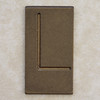



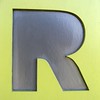
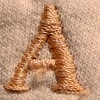
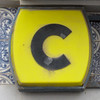

You can create cool spelling headers to use as labels or banners.
I made this one using:
Flickerhttp://metaatem.net/words/
Subscribe to:
Posts (Atom)

